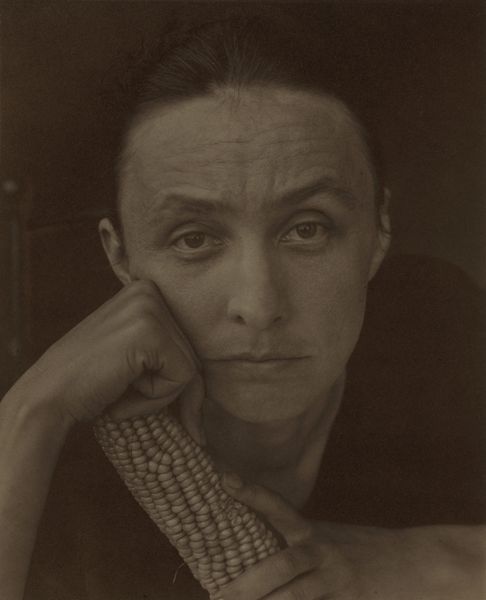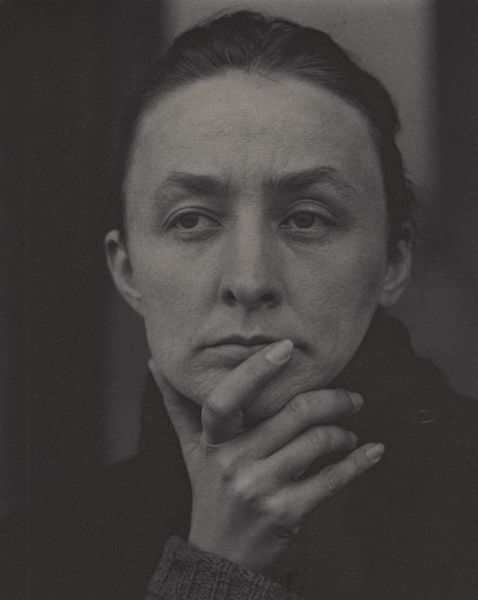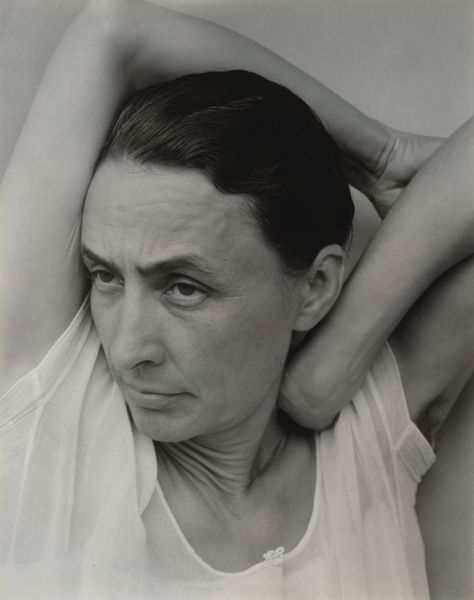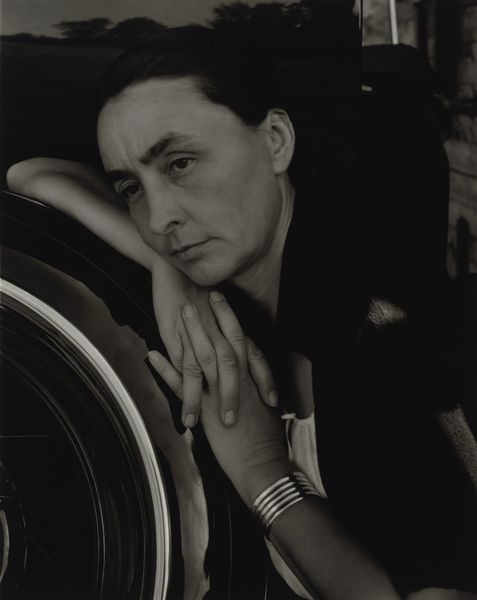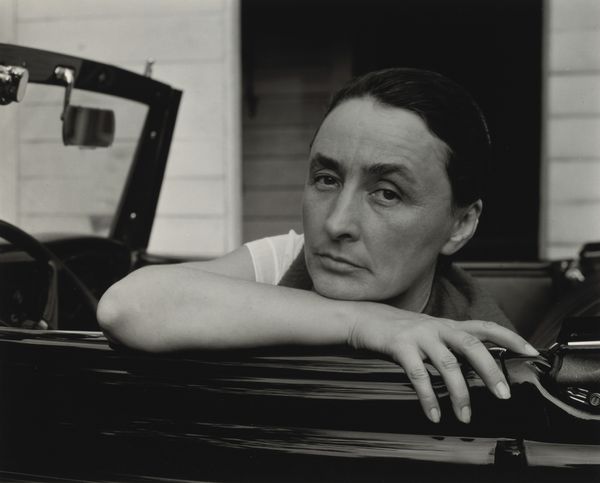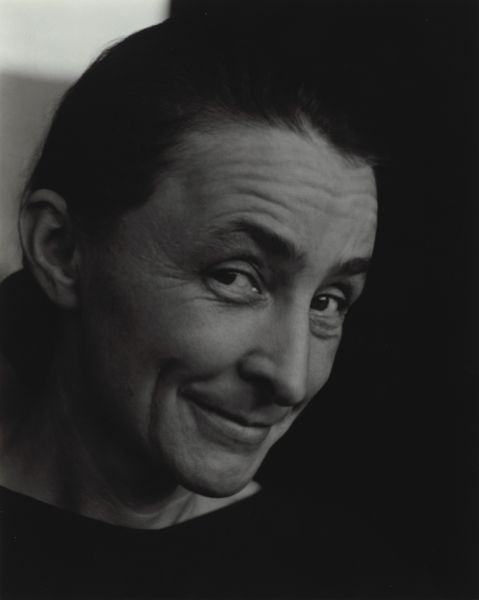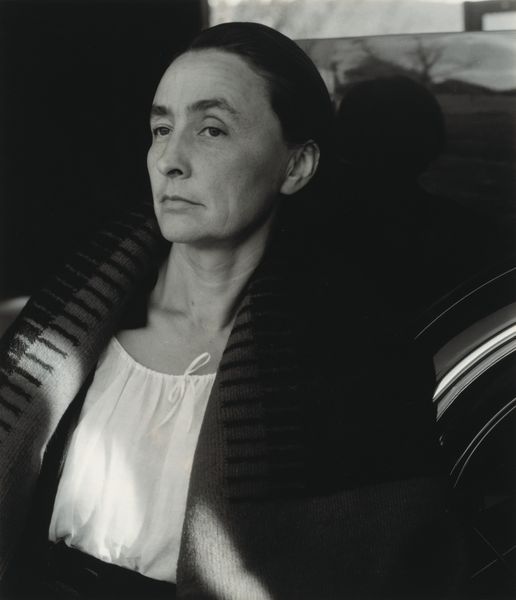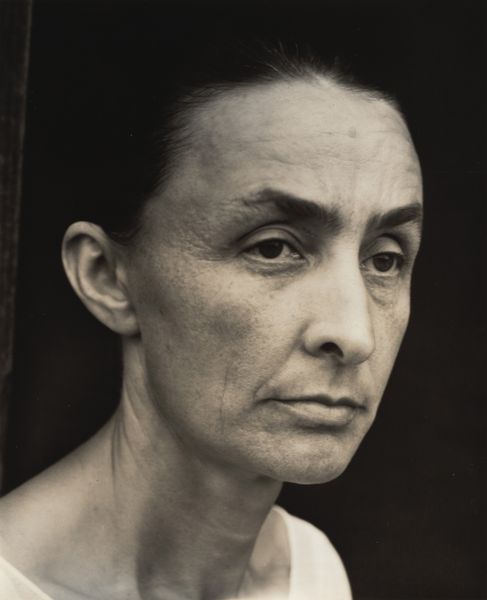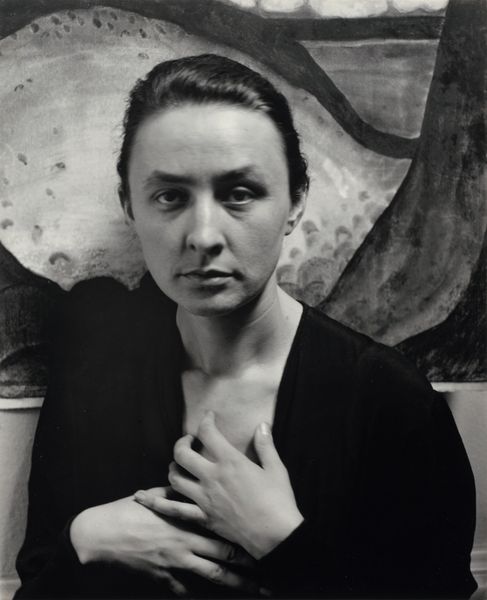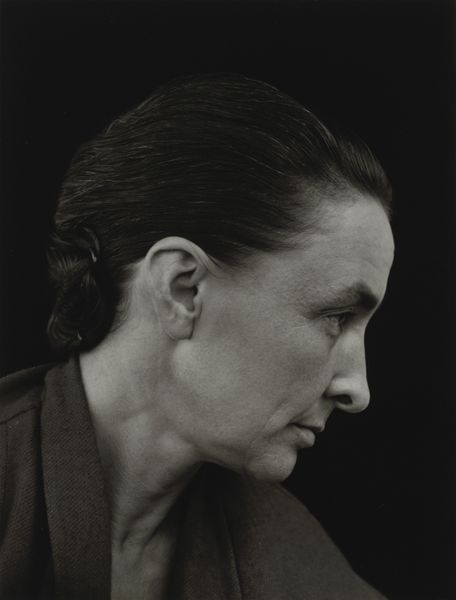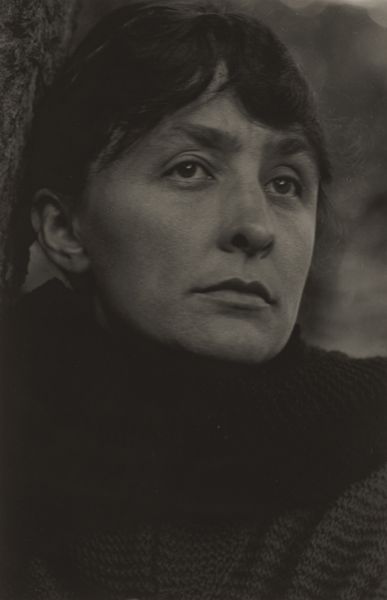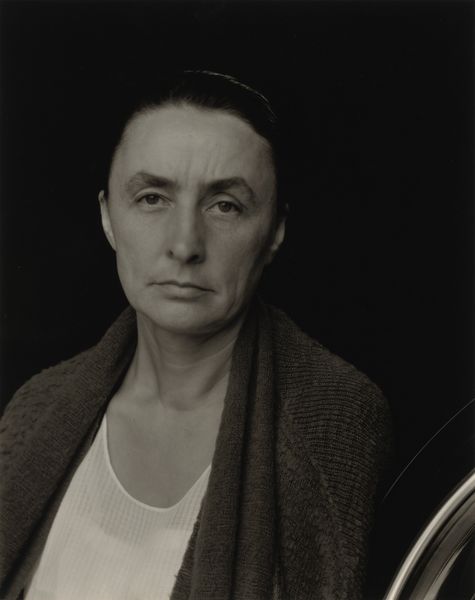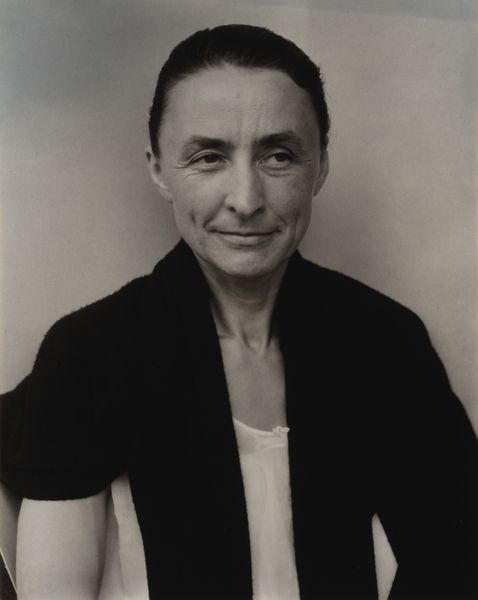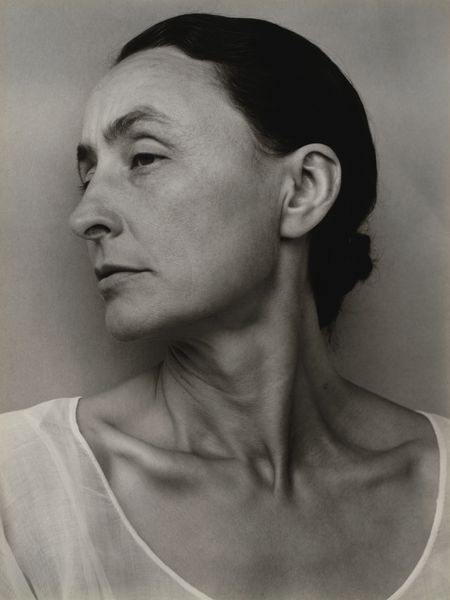
photography, gelatin-silver-print
#
portrait
#
low key portrait
#
pictorialism
#
black and white format
#
photography
#
historical photography
#
black and white
#
gelatin-silver-print
#
modernism
Dimensions: sheet (trimmed to image): 24 × 19 cm (9 7/16 × 7 1/2 in.)
Copyright: National Gallery of Art: CC0 1.0
Editor: This gelatin-silver print, simply titled "Georgia O'Keeffe," was captured by Alfred Stieglitz between 1932 and 1933. There’s an undeniable intimacy here, and the light almost seems to sculpt her face. I’m curious, what's your take on this photograph? Curator: What I find most compelling is how this image functions as both portrait and artifact. Consider the material reality of a gelatin-silver print – a chemical process, light hitting treated paper. This is a product of both artistic intention *and* industrial means. The dark areas are nearly absent of texture, they speak of both reduction, but more importantly what the work wasn’t intended to emphasize in the artistic approach. Editor: So, you're focusing on the physicality of the photograph itself, rather than just O'Keeffe's image? Curator: Precisely. Stieglitz, by using photography – a medium still wrestling for artistic recognition – highlights the means of production. Every decision, from the film type to the developing process, becomes a statement. It begs the question: How does the chosen material and process shape our understanding of O'Keeffe, not just as a person, but as a contemporary artist? Editor: That’s fascinating. I usually focus on the subject, but thinking about the material itself gives it a whole new layer of meaning. Curator: Exactly! Stieglitz’s choices, the limitations and affordances of gelatin-silver, all contribute to how we consume and interpret the image, as an artifact and as an intimate and romantic portrayal. Editor: I’ll definitely be thinking about the materials more when I look at photography from now on. It really shifts the focus. Curator: Absolutely. Considering art’s materiality always enriches our experience and brings to the foreground that the artist is, after all, always making something tangible.
Comments
No comments
Be the first to comment and join the conversation on the ultimate creative platform.
